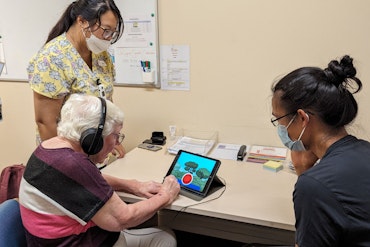Nation’s first advance care planning guide for aged care now available
A collaborative effort between Advance Care Planning Australia and the National Ageing Research Institute (NARI) has led to the development and launch of the nation’s first advance care planning guide for aged care providers.

A new advance care planning guide for aged care is now available to providers (Source: Shutterstock)
The publication, Advance care planning in aged care: A guide to support implementation in community and residential settings, offers comprehensive information on advance care planning specific to the aged care sector; from engaging with patients and families, policies and procedures and legal aspects relevant to each state and territory.
Medical Director for Advance Care Planning Australia Dr Karen Detering says the guide was developed using findings from a literature review, a national survey of community and residential aged care providers, consultation with community and residential aged care staff from four states, and consultations with older people, as well as existing resources produced by Advance Care Planning Australia.
“Until now, there have been limited practical, evidence-based resources for the aged care sector to confidently support patients and families with advance care planning,” Dr Detering says.
“This new guide will hopefully fill this gap.”
NARI Director of Gerontology Dr Frances Batchelor also stood by the new publication, officially launched by Federal Minister for Aged Care Ken Wyatt.
“Although biomedical advances enable humans to live longer, the quality of life and end-of-life care is an issue that is rarely addressed in older people nearing the end-of-life,” Dr Batchelor says.
“Advance care planning gives older people the opportunity to discuss and determine their preferences for medical treatment if and when they are incapacitated.
“It also helps ensure that time and resources are not wasted on unwanted treatment options, and reduces the emotional distress of families at a stressful period.”























